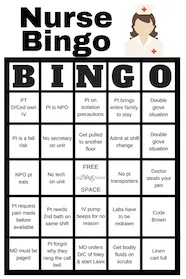Nurses who utilize evidence-based practice (EBP) are able to deliver high-quality care by making data-driven decisions that incorporate clinical expertise and research. Nurses have always relied on evidence-based practice to provide care for patients with the highest quality. These nurses are also able to reduce risks and manage patient safety. The importance of this type of nursing cannot be overstated because it not only helps improve outcomes but also reduces costs associated with poor decision-making when it comes to treatment options or interventions.
In this blog post, we will explore why Evidence-Based Practice is important in nursing and how they can apply this philosophy to practice, and what the benefits are to patients and other health care providers.
What is Evidence-Based Practice?
Evidence-based practice is a conceptual framework for all clinical decision-making that integrates the best available research evidence with our individual patients’ beliefs and values.
In nursing, you have to look at research, study findings, and make decisions based on what you find. It’s an approach that has been recognized as one of the best ways for providing safe medical care in hospitals across the country.
Evidence-based practice is the foundation of all nursing interventions and it includes synthesizing research findings with clinical expertise to provide the best care for patients.
Evidence-based practice requires nurses to maintain a reflective stance, continually questioning their knowledge and using evidence from different sources to guide decision-making.
Nursing students are challenged by this process as they learn how research informs practice in order to become competent practitioners who can competently evaluate information in an increasingly complex healthcare environment.
It is important for nurses to understand what evidence-based practice. EBP nursing starts with a systematic review or search, which includes the following:
5 Frameworks of Evidence-Based Practice
- Theoretical framework: The first we have is a theory, which is based on a problem, and the need for an intervention
- Conceptual framework: The next one we have is theory-based research. This type of research provides evidence to support the effectiveness of interventions
- Empirical data: Empirical Data are collected from previous studies that can provide information about how effective our interventions work in specific contexts
- Contextual factors: Contextual Factors relate to what makes each person unique and different from another individual. These include things like culture, age group, socioeconomic status, geographic location etc. They also determine which types of strategies may be more or less helpful for any given case
- HCI (Human-Computer Interaction): HCI looks at how people react in response to computer interfaces/or how they interact with and use technology.
It is very important that nurses are educated on what evidence-based practice really means, and how it can help them provide safe medical care. It’s not just about providing better patient outcomes. There have been studies done to show that EBP has improved employee satisfaction levels in nursing as well.
The purpose of this type of systematic review is to generate new information about clinical issues using rigorous methods so clinicians can make informed decisions when faced with health care questions from patients, families, colleagues, and other stakeholders.
Methods: this type of systematic review is conducted by an expert panel that systematically searches the literature for a specific clinical question, then evaluates all identified study abstracts to identify those studies that are most relevant based on pre-specified criteria.
For each included study, basic information (i.e., characteristics of the population studied, interventions or exposures assessed) is extracted from the article using standardized data forms.
The expert panel conducts a consensus meeting to reach agreement among team members about ratings assigned to quality of evidence rating scales; these ratings are summarized in tables for easy comparison across outcomes and populations/subgroups within studies rated as high-quality evidence.
Results: conclusions can be reached when there is sufficient information available from well-designed, well-powered randomized controlled trials.
Why Use This?
A major issue in healthcare today is providing efficient, effective, safe, and equitable services to an aging population of increasing diversity.
Several strategies have been developed to improve the quality of patient care by using systematic reviews of studies published in peer-reviewed journals as a basis for decisions about appropriate interventions or treatments (Linde 2002).
The use of this type of information has been called “evidence-based medicine” or “clinical guidelines”; these terms are often used interchangeably but maybe should not be.
Clinical guidelines are systematically developed statements that identify for practitioners those interventions and preventive services best suited to improving health outcomes and meeting the needs of different populations.
Examples of Evidence-Based Practice in the Nursing Profession
When it comes to examples, you can see just how evidence-based practice is important for nurses and nursing students.
Here are some examples of practices that have been researched:
- Evidence-based research on the most effective ways to help patients with anxiety, depression, psychoses
- A study found that patient care time increased by 25% when a nurse used an electronic medication administration record (EMAR) rather than just relying on memory or written documentation.
Evidence-based practice in nursing isn’t as simple as it may seem at first glance.
There’s lots of information out there about which studies should be considered “evidence” and which ones shouldn’t and each one will have its own limitations and considerations.
Future Directions for Evidence-Based Practice in Nursing
Technology is growing day by day in every field, and health care is not an exception. Nowadays, every hospital has a webpage and its own social media account to interact with society on a daily basis. This means that health professionals have new tools at their disposal for educating patients about healthy living or providing them with instructions according to what they need.
Benefits of Evidence-Based Practice in Nursing
The benefits of EBP are following:
- Prevention of injury by using evidence to identify risk factors for health problems.
- Reduction in use of high-cost, invasive treatments.
- Assessment and monitoring of the effectiveness of care interventions aimed at delivering improved outcomes or better quality of life measures.
- Improved access to care through a more appropriate, patient-centered decision-making process that recognizes diversity among patients while improving communication between clinicians and patients about diagnosis, treatment options, and prognosis with an emphasis on shared decision making.
Conclusion:
As evidence-based practice becomes more popular, the need for nurses with EBP training is growing. Duquesne University’s Doctor of Nursing Practice program emphasizes both research evaluation and translation of evidence into practice.
So we have gone over what is EBP, its benefits, and how it impacts the future for nurses. You can read more about these topics on our website.
More Resources for Evidence-Based Practice:
- Evidence Based Practice: Nurses Barriers to Implementation?
- Focusing on Quality Evidenced-Based Nursing Practice during Hiring, Onboarding, and Throughout Employment
- Field Study: What Nurse Practitioners Do
Download Nurse Bingo Today!

Liven up any shift with a fun game of bingo. See who can fill a row first!
Fill a whole card and lose grip with reality.
Your privacy is protected. We will never spam you.




